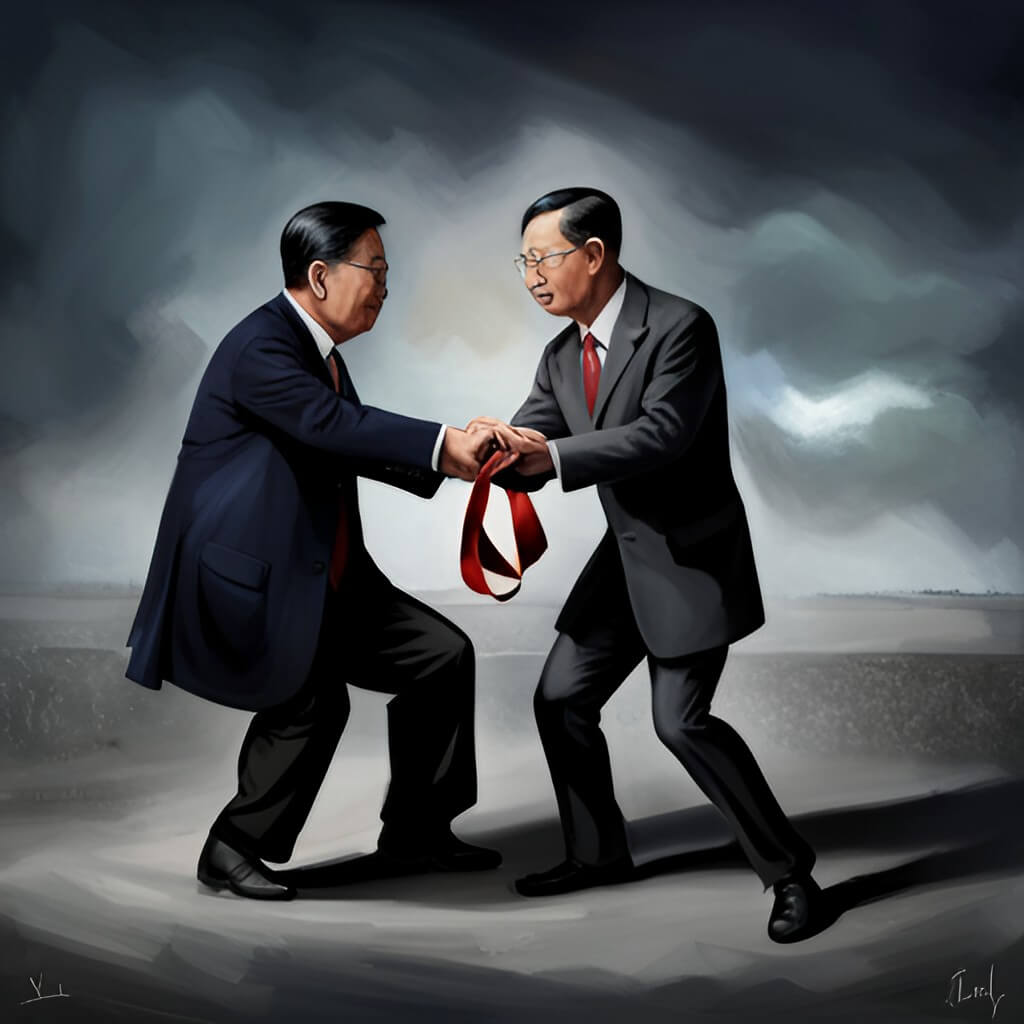Tether Holdings Ltd. has had a long-standing dance with China for years. Documents released by New York’s attorney general revealed that Tether Holdings Ltd., the issuer of the world’s largest stablecoin, USDT, used to include securities issued by Chinese companies in its reserve portfolio. But Tether’s connections to China run far deeper than its commercial paper.
Tether’s controversial Chinese odyssey
Tether has recently confirmed that a substantial portion of its reserves are held in commercial paper and other securities associated with Chinese institutions and entities. Tether’s ties to China, however, extend far beyond this commercial document. For years, the stablecoin issuer was the subject of rumors that it had exposure to Chinese commercial paper.
China has been an integral part of Tether’s history from the very beginning, from the experiences of its executives to the assets that comprise the reserves and the real-world applications that Tether has discovered.
A Bloomberg investigation published in October 2021 discovered evidence that Tether’s reserves included billions of dollars in short-term loans to Chinese corporations as well as a substantial loan to the crypto platform Celsius Network.
At the time, the stablecoin issuer denied any exposure to the debt of the crisis-stricken China Evergrande Group but declined to comment on whether it held securities of other Chinese companies or issuers.
According to documents released by the New York Attorney General, the entity at one point held securities issued by significant Chinese state-owned companies, including Industrial & Commercial Bank of China Ltd., China Construction Bank Corp., and Agricultural Bank of China Ltd.
The documents listing the individual securities do not indicate when the company held them. The securities had 2020 or 2021 maturities. According to the documents, the stablecoin issuer also held securities issued by companies spanning from Deutsche Bank AG to Barclays Bank Plc and ArcelorMittal SA.
That is not all – the ties run deeper than these securities and commercial paper. Here’s more.
Tether founders and the People’s Republic of China
Brock Pierce is one of Tether’s founders. Previously, he oversaw Internet Gaming Entertainment (IGE), a company that sold virtual items for Everquest, World of Warcraft, and other online games. IGE relied on Chinese laborers who mined digital gold and then sold it to IGE, which resold it to a predominantly Western market.
Together with Jonathan Yantis, a co-founder of Tether, this company was operated amid multiple legal disputes. William Quigley, another co-founder of the entity, also served on IGE’s board of directors. CEO of the company, Steve Bannon, subsequently supported Pierce’s unsuccessful political campaign in the United States.
Bannon has extensive ties to the Chinese oligarch Guo Wengui. The Securities and Exchange Commission (SEC) charged both parties with selling unregistered G-coin-related securities.
The history of Devasini and van der Velde – Bitfinex and Tether
Jan Ludovicus van der Velde (Jean Louise) and Giancarlo Devasini, Bitfinex, and Tether’s CEO and CFO ran an electronics import-export firm together. According to Financial Times, Devasini oversaw the Italian division of the firm, Perpetual Action Group, registered in Monaco.
Perpetual Action Group (Asia) was van der Velde’s Asian import-export business. The stablecoin issuer informed the FT that Perpetual Action Group (Monaco) was autonomous from Perpetual Action Group (Asia), although van der Velde and Giancarlo “had some level of involvement with both companies.”
Perpetual Action Group (Asia) also owned DigFinex, which controls Bitfinex and Tether. Huashun Electronics is now on China’s Seriously Illegal and Dishonest Entities List, preventing van der Velde from operating other Chinese enterprises.
On March 8, 2013, Bitfinex was founded in Hong Kong as Bitfinex Limited. Van der Velde was appointed as a director two weeks later. On December 10 of the same year, Devasini was also appointed to the board of directors.
Tether Limited was founded in Hong Kong on September 8, 2014, by van der Velde. A little under a month later, Devasini was brought on as a director. Reporters who visited the registered addresses of these organizations did not discover any active operations. The addresses appeared to be used exclusively for correspondence.
China’s capital controls and money laundering
Capital controls evasion has been suggested multiple times as one of Tether’s use cases, particularly in China. In 2020, Chainalysis released a report indicating that Tether was “disproportionately popular” and “particularly useful for capital flight.”
The company elaborated on how capital controls can contribute to Tether’s growth, stating specifically that “USDT provides an alternative that allows entities and individuals to circumvent capital controls by using an entirely different financial infrastructure.”
In December 2022, Chinese authorities apprehended 63 members of a money laundering ring. The gang apparently laundered $1.7 billion using USDT as a central component of their operation.
Babel Finance and Tether
Before its demise, Babel Finance was a significant crypto lender in China. Notably, it extended credit to a number of Chinese crypto producers. In 2020, a whistleblower disclosed to a news outlet that Babel Finance misappropriated client funds for leveraged trading strategies.
This recording also alleged that Tether’s loan to Babel was a bailout to ensure the company’s survival. According to one portion of the recording, Tether’s chief investment officer, Silvano di Stefano, referred to Babel Finance as “bad customers.”
As restructuring continued, the total sum of Babel’s losses eventually exceeded $750 million. The company then proposed issuing a new stablecoin to begin repaying creditors.





